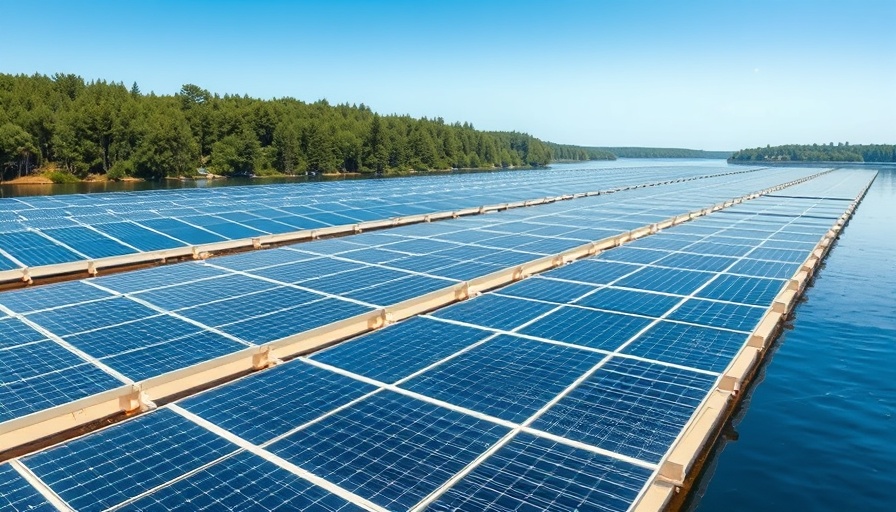
China's Dominance in Clean Energy Financing
In a landscape increasingly defined by climate change challenges, China has emerged as Southeast Asia's largest public funder of clean energy investments, injecting over US$2.7 billion into various projects across the region from 2013 to 2023. According to a study conducted by Zero Carbon Analytics, most of this financing directed towards hydroelectric and wind projects has positioned Indonesia as the major recipient. This significant uptick in clean energy funding underscores China's strategic interests in aligning regional energy development with green initiatives.
The Impacts of US Tariff Policies
However, the promise of this green transition is cast into uncertainty due to US-driven tariff policies that may pressure Southeast Asian countries, like Indonesia, back towards fossil fuel dependence. Sharon Seah, a senior fellow at the ISEAS-Yusof Ishak Institute, warns that increased tariffs might hinder the countries' efforts to pivot towards sustainable practices. As nations in the region aim for ambitious growth targets—Indonesia, for example, aspires to an annual GDP growth of 8% to achieve its 2045 developmental goals—these protective measures could lead to a regression into tried-and-true industrial strategies, thus impacting the momentum of renewable investments.
China's Green Initiatives: Lessons for Southeast Asia
Despite these tensions, China's commitment to its green growth trajectory serves as an instructive case for its ASEAN neighbors. The Belt and Road Initiative (BRI), which aims to enhance trade connections, has increasingly emphasized green investments, showcasing how state-led strategies can effectively support renewable projects. This includes solar installations in various ASEAN states such as Indonesia and Myanmar, advancing both energy infrastructure and climate resilience.
Comparative Public Funding in Clean Energy
In the same context, Japan and South Korea have also made considerable contributions to clean energy financing in Southeast Asia, though their commitments fall short compared to China's. Japan has invested approximately US$2.45 billion, focusing primarily on geothermal and solar energy projects in Indonesia and Vietnam, while South Korea's investments hover around US$583 million. This comparative funding landscape highlights the active investments made in the region, yet leaves ample room for further exploration into sustainable solutions and technologies.
Moving Forward: Strategies for Sustainable Development
As regional countries navigate the complexities of balancing economic growth with environmental responsibilities, the theme of sustainable living resonates prominently. Clear frameworks for financing green initiatives and fostering eco-friendly practices can help ensure that the region does not revert to conventional energy sources due to short-term economic pressures. Embracing renewable energy technologies and incorporating sustainability initiatives into their economic models can inspire a shift towards a more resilient green economy.
Actions for Environmental Impact
For individuals and communities, understanding the dynamics of clean energy investments and their implications for climate change action is crucial. Eco-conscious living and responsible consumption practices, such as reducing waste and supporting sustainable products, can create a collective impact that supports these broader green initiatives. Consumers can advocate for transparency and accountability in sourcing, encouraging companies to adopt sustainable practices, which in turn drives a larger transformation.
As we explore the significance of China’s investments and the challenges posed by tariff policies, it becomes clear that strategic collaboration and a commitment to sustainable development are essential for navigating the energy landscape of Southeast Asia.
Conclusion: A Call to Action
To foster a more sustainable future, it’s vital for both individuals and communities to engage in eco-friendly initiatives and support green technologies. By committing to renewable energy solutions and ethical consumption, we can collectively reduce our carbon footprint and initiate lasting changes within our societies and economies.
 Add Row
Add Row  Add
Add 



Write A Comment